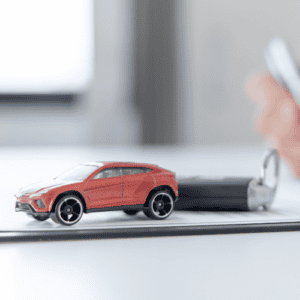Are you considering buying a used car but feeling overwhelmed by the process? You’re not alone. Many prospective buyers find themselves asking, “What should I look for when buying a used car?” or “How can I ensure I’m not getting ripped off?”
This comprehensive guide will walk you through everything you need to know about purchasing a second-hand vehicle in the UK, from initial research to driving away with confidence.
What’s in the Checklist
Where to Start: Essential Tips Before Viewing Cars
Before you start browsing listings or visiting dealerships, it’s crucial to lay the groundwork for a successful purchase:
- Set Your Budget: Determine how much you can afford, considering not just the purchase price, but also running costs, insurance, and potential repairs.
- Research Makes and Models: Use reputable resources like eBay, and for cheaper options, use Facebook Marketplace. You can also check our used car section for most cheapest new car deals.
- Check Market Values: Utilise online valuation tools to understand fair prices for the models you’re interested in.
- Research Model-Specific Issues: Look for buyer’s guides specific to the model you’re interested in. These can provide invaluable information about common problems and what to look out for. Look for unbiased reviews online, you can also check our car review section for more unbiased reviews.
- Get Insurance Quotes: Before viewing any cars, get insurance quotes to ensure you can afford to run the vehicle. Use comparison websites and save quote reference numbers for later use. Choose insurance website like compare the market for get the quote on cheapest insurance available for your desired vehicle.
Dealership vs Private Sale vs Online: Choosing Where to Buy
Where you choose to buy your used car can significantly impact your experience, rights as a buyer, and potentially your wallet. Let’s break down the pros and cons of each option:
Buying From a Dealership
Pros
- ✓ Often offer warranties and manufacturer incentives
- ✓ Must adhere to certain standards and consumer protection laws
- ✓ Greater consumer protection under the Consumer Rights Act
- ✓ Expert advice and guidance from sales staff
- ✓ Opportunity for test drives and in-person inspection
- ✓ Potential for negotiation and flexible pricing
- ✓ Access to a variety of financing options and promotional deals
Cons
- ✗ Generally more expensive than private sales
- ✗ Potential for upselling pressure and pushy sales tactics
- ✗ Limited inventory compared to online platforms
- ✗ Time-consuming process with potential for high-pressure sales environment
- ✗ Harder to walk away from a deal in person
Buying from a Private Seller
Pros:
- ✓ Often cheaper than dealerships
- ✓ More room for negotiation
- ✓ Potential for finding unique or well-maintained vehicles
- ✓ Direct communication with the previous owner
- ✓ No sales pressure or upselling tactics
Cons:
- ✗ Less legal protection compared to dealership purchases
- ✗ No warranties unless remaining from the manufacturer
- ✗ Requires more thorough checks and inspections
- ✗ Limited financing options
- ✗ Potential for scams or misrepresented vehicles
- ✗ Need to handle paperwork and transfers yourself
Buying Online
Pros:
- ✓ Wide selection of vehicles from various locations
- ✓ Convenience of browsing and purchasing from home
- ✓ Easy comparison of multiple vehicles and prices
- ✓ Some online platforms offer additional buyer protections and return periods
- ✓ Often feature no-haggle pricing, reducing stress for those who dislike negotiation
- ✓ Potential for home delivery of vehicles
- ✓ Attentive customer service through online chat and support
Cons:
- ✗ Can’t physically inspect or test drive the car before purchase in most cases
- ✗ Potential for scams or misrepresented vehicles
- ✗ May need to arrange delivery or collection, potentially incurring extra fees
- ✗ No opportunity for price negotiation on most platforms
- ✗ Lack of personal interaction and expert guidance
- ✗ Potential for unexpected fees (e.g., delivery charges)
Considerations When Choosing Where to Buy
- Budget and Financing : Dealerships often have more financing options, while private sales might require cash or pre-arranged loans. Online platforms may offer their own financing but compare rates with other lenders.
- Vehicle Condition and History: Dealerships typically recondition vehicles before sale, while private sales require more diligence in checking the vehicle’s condition and history. Online platforms often provide detailed vehicle reports.
- Time and Convenience: > If you enjoy negotiating, dealerships and private sales offer more opportunity for this. Online platforms usually have fixed prices.
- Negotiation Skills: If you enjoy negotiating, dealerships and private sales offer more opportunity for this. Online platforms usually have fixed prices.
- After-Sale Support: Dealerships often provide better after-sale support and may be more willing to address issues that arise shortly after purchase.
- Return Policies: Many online platforms offer return periods. At Choose My Car, we provide a 30-day return policy. Check our return policy, which can provide peace of mind when buying sight unseen. Dealerships may have more limited return policies, while private sales typically have no returns.
- Test Drives: Dealerships and private sellers allow for test drives before purchase.
- Variety of Options: Online platforms typically offer the widest selection of vehicles, followed by large dealerships. Private sales and smaller dealerships may have more limited options.
Ultimately, the best option depends on your individual needs, preferences, and comfort level with the car-buying process. Consider factors such as your budget, desired vehicle, willingness to negotiate, and need for warranties or after-sale support when deciding where to make your purchase.

What to Look for When Buying a Used Car: A Detailed Checklist
Regardless of where you’re buying from, this checklist will help ensure you don’t miss any crucial details:
1. Vehicle History and Documentation
- Vehicle History Check :Conduct an HPI check to reveal any past accidents, outstanding finance, or mileage discrepancies.
- MOT History : Check the MOT history on the government website (gov.uk/check-mot-history) to understand the car’s maintenance record and look for recurring issues.
- Service History : A full service history indicates the car has been well-maintained.
2.Exterior Inspection
- Bodywork: Look for signs of rust, dents, or mismatched paint that could indicate past repairs.
- Tyres: Check tread depth and wear patterns, which can reveal alignment issues.
- Lights and Glass: Ensure all lights are working and check for any cracks or chips in the windscreen.
3. Interior Inspection
- Seats and Upholstery: Check for excessive wear, tears, or stains.
- Dashboard: Ensure all warning lights function correctly and there are no persistent warning indicators.
- Electrics: Test all electrical components, including windows, air conditioning, and infotainment systems.
4. Under the Bonnet
- Engine: Look for leaks, listen for unusual noises, and check oil levels and colour.
- Belts and Hoses: Inspect for signs of wear or cracking.
- Fluid Levels: Check coolant, brake fluid, and power steering fluid levels.
5. Test Drive
- Engine Performance: Listen for any unusual noises and check for smooth acceleration.
- Brakes: Ensure the car stops smoothly and in a straight line.
- Steering: Check for any pulling to one side or excessive play in the steering wheel.
- Gears: For manual cars, ensure smooth gear changes. For automatics, check for any hesitation or jerking when shifting.
Expert Tips for Buying a Used Car
- Call the Seller: Always call rather than message. You’ll get a better feel for the seller and they’re more likely to take you seriously as a buyer.
- Ask Specific Questions: Inquire about service history, known issues, and model-specific concerns (e.g., timing belt changes for certain models).
- Check Insurance Before Viewing: Get insurance quotes before viewing to avoid wasting time on cars you can’t afford to insure.
- Plan Your Payment Method: For bank transfers, notify your bank in advance to avoid potential fraud blocks.
- Time Your Viewing: For high-value purchases, view during bank hours in case you need to visit a branch to complete the transaction.
- Take Your Time: Don’t be rushed during the inspection. Take notes of any issues for negotiation later.
- Always Test Drive: Never skip the test drive, even if you’re familiar with the model.
Negotiating the Best Deal
Negotiation is a crucial part of the used car buying process. Here are some tips to help you get the best deal:
- Do Your Research: Know the market value of the car before negotiating.
- Start Low: Begin with a lower offer than you’re willing to pay, but keep it reasonable to be taken seriously.
- Use Faults as Leverage: Mention any issues you’ve found during inspection to justify a lower price.
- Be Prepared to Walk Away: If the seller won’t meet a fair price, be ready to look elsewhere.
- Consider Total Cost: Factor in any immediate repairs or maintenance needed when negotiating.
For more detailed strategies on negotiating, check out our article on How to Negotiate the Best Deal on a Used Car
Post-Purchase Steps: What to Do After Buying a Used Car
Once you’ve made your purchase, don’t forget these crucial steps:
- Transfer Ownership: Use the online service to transfer the V5C into your name. This can only be done between 7 AM and 7 PM.
- Collect Documentation: Ensure you receive the green ‘new keeper’ slip from the V5C, which you’ll need to tax the car.
- Arrange Insurance: Purchase insurance using the quote reference number you obtained earlier.
- Tax the Vehicle: Use the code on the green slip to tax your new car online.
- Consider Breakdown Cover: Services like AA breakdown cover can provide peace of mind.
- Schedule a Service: If the car is due for a service, book it in promptly.






